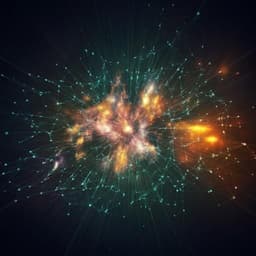
Space Sciences
Time perception in astronauts on board the International Space Station
D. C. N. Morales, O. Kuldavletova, et al.
This study explores how spaceflight affects astronauts' perception of time, revealing intriguing findings such as the overestimation of short intervals and accurate estimations of days. Conducted by Deborah C. Navarro Morales, Olga Kuldavletova, Gaëlle Quarck, Pierre Denise, and Gilles Clément, this research raises important questions for time-critical operations in space.
Playback language: English
Related Publications
Explore these studies to deepen your understanding of the subject.







